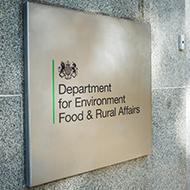Suffolk poultry keepers urged to step up biosecurity efforts

Compulsory housing measures for birds have been in place since November 2021.
Chief veterinary officer Christine Middlemiss has called on poultry keepers in Suffolk to step up their efforts to protect their flocks against avian influenza.
In a statement, Ms Middlemiss acknowledged the work of many poultry keepers to mitigate the spread of avian flu but warned that ‘not enough is being done by all bird keepers’ to keep the disease out of the county.
"We have taken swift action to limit the spread of the disease including by introducing housing measures. However we are still seeing a number of bird flu cases both on commercial farms and in backyard birds right across Suffolk," she said.
"Many poultry keepers in Suffolk have excellent biosecurity standards but the number of cases we are seeing suggests that not enough is being done by all bird keepers to keep bird flu out. Whether you keep just a few birds or thousands, you must take action now to protect your birds from this highly infectious disease."
The call comes amid a spike in cases across Suffolk, with highly pathogenic avian influenza (HPAI) confirmed at five new premises in the past month alone. It also comes at a time when the UK is facing its largest-ever outbreak of avian flu - some 100 cases have been identified across Britain since November 2021.
Compulsory housing measures for chickens, ducks, geese and any other birds have been in place since November 2021, making it a legal requirement for keepers to house their birds indoors and follow strict biosecurity measures.
Keepers are being that while the main source of infection comes from migratory wild birds, those failing to implement the measures risk infecting their own flocks by walking the virus into their holdings.
Ms Middlemiss continued: “The avian flu outbreak has not gone away and implementing scrupulous biosecurity remains absolutely critical. You must continue to regularly clean and disinfect your footwear and clothes before entering enclosures, stop your birds mixing with any wild birds and only allow visitors that are strictly necessary. It is your actions that will help keep your birds safe.”



 The latest
The latest